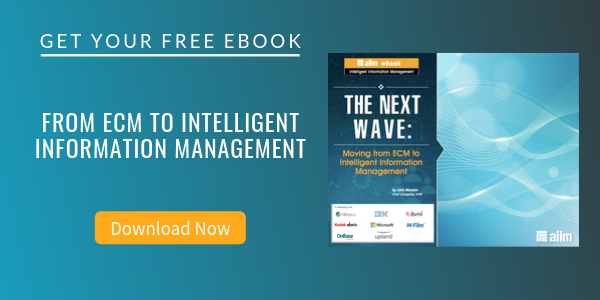
3 Reasons Why Content Integration Ought to Be a Priority
Enterprise Content Management (ECM)
Most organizations finally believe that maximizing the value of content and information through a coherent information strategy is critical to their future in a digital world. Their information strategy requires a content integration platform, one that is flexible enough to evolve over time.
Why? Here are the three main reasons:
1. Content is everywhere.
Every organization has content, and a lot of it. It is scattered everywhere. On laptops, on network shares, and hidden in email folders. Besides that, content is stored on business systems, like ECM, WCM, DAM, and RM systems, and it can be found in on-premise BPM and ERP and CRM systems. And with the rise of cloud solutions, content can even be found in the cloud.
With so many content systems and the fact that the volume of content is growing fast, the need for organizations to update their content infrastructure to one that is integrated has never been so high.
2. Cloud solutions versus legacy.
Organizations (think they) have to choose between two conflicting solutions. First, they are making plans to take advantage of cloud content management solutions and are investigating how these can be implemented in the next 18-24 months. On the other hand, they have multiple legacy systems in place that are performing critical functions that can’t be turned off without business disruption. According to Forrester, 87% of organizations surveyed retain some or most legacy content in old systems. Luckily, organizations don’t have to choose between these two options using a content integration platform.
3. A single repository is unrealistic.
The attempt for enterprises to standardize on one content repository seems impossible and irrelevant. According to a Forrester survey, only 7% of organizations surveyed have migrated all content to one or more new ECM system(s). Instead of content migration, content integration can be the solution. In this approach, you can migrate the content you need and integrate what you want.
Rationalizing and modernizing your content infrastructure needs to be more than just an abstract goal.


